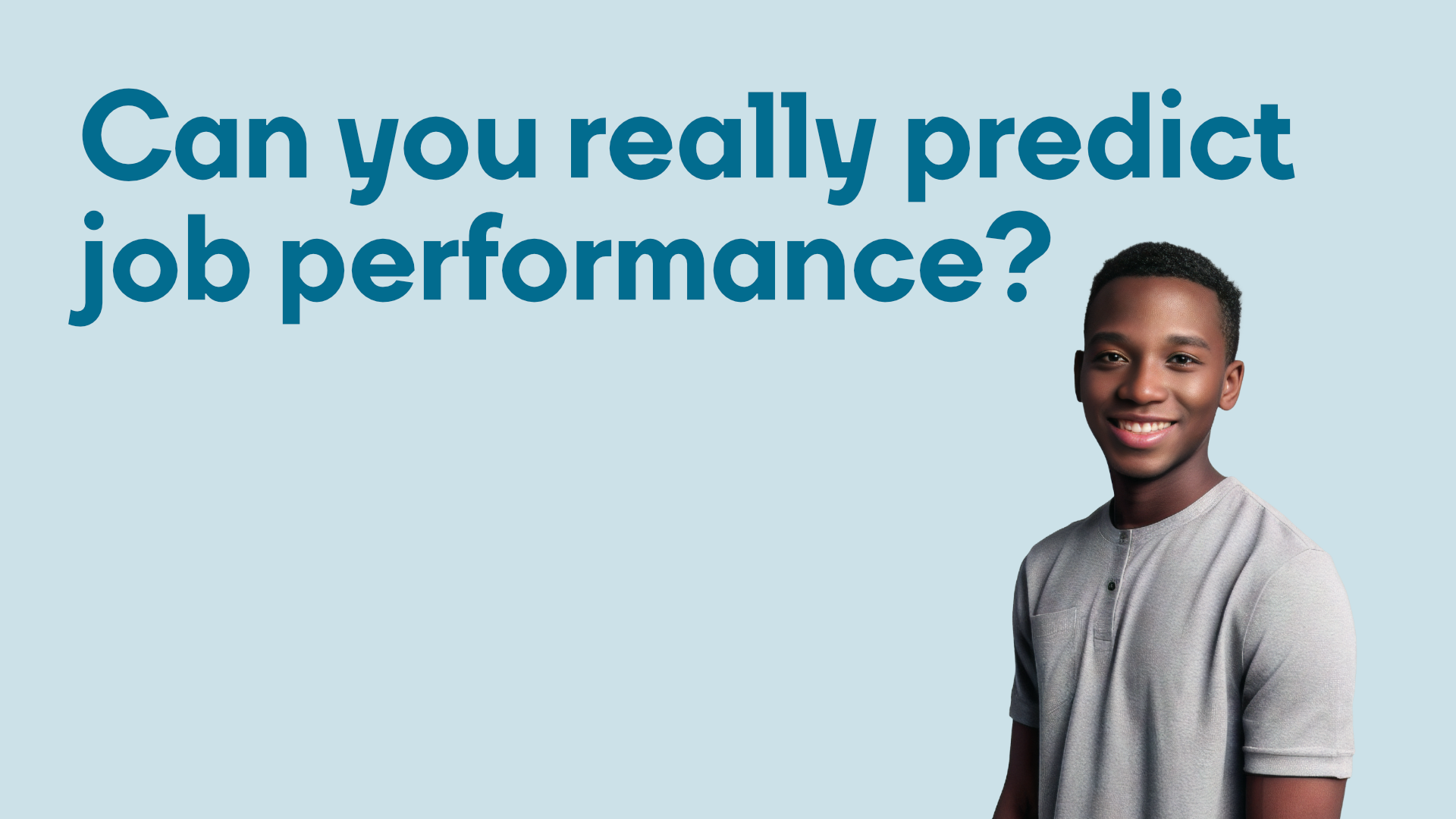In the recruitment industry, you are never more than four metres away from the next, new, big-idea for doing recruitment better. At Clevry, we like to keep things simple and so we´re here to help explain trends, developments, and fads in recruitment technologies. This month: Predictive Hiring.

What is predictive hiring?
All hiring is by its very nature, predictive. You gather some information about the candidate, compare this to the demands of the job and make a hiring decision based on your prediction of how well they would perform. The accuracy of this prediction varies somewhat.
But if youre asking about Predictive Hiring, then depending which business is selling it to you, it could involve AI, big data, algorithms, cutting-edge assessments, or analytics, in a fast and frictionless way to be the future of talent acquisition. Did I mention AI in recruitment?
If youre asking me, then its simpler than that. At its heart, predictive hiring combines accurate, structured assessment of the candidates strengths with a clear picture of the rewards and demands of the role to select the candidate best matched to the job.
Can you really predict job performance?
Not perfectly, despite what anyone else might say. But, if you have high-quality insights into the candidates soft skills strengths in terms of their mental firepower interpersonal behaviours, thinking and feeling style, motivations, and values then youre off to a good start.
If you can then match those to a profile of the job that clearly describes the strengths required to perform well and the sources of challenge, rewards, and joy that the right person will feel engaged and motivated by, then thats the core of a good prediction.
You can enhance the power of the prediction further by combining multiple, structured assessment types (psychometrics, structured interviews, cognitive tests, simulation activities) to really build a true picture of the candidate. Base decisions on assessments performed by more than one person to minimise bias and improve hiring decision-making is a big help too.
To get to something like 90% effective prediction, you also need to address company culture, leadership style, job design, reward structure, career progression opportunities. Not even the best candidates will perform well in a lousy job in a horrible working environment, regardless of what your prediction says.
How can predictive hiring help businesses and recruiters?
When you get hiring right, then you enjoy all sorts of benefits; increased performance, retention, improved company culture, easier succession planning for growth and reduced costs associated with recruitment.
Predictive hiring as an approach can you get it right more of the time. Especially if you take a holistic approach to improve all your processes. Buying a single, shiny, new recruitment tool is no silver bullet.
Are assessments really that predictive?
They can be when used well but are never perfect. Research indicates that structured, multiple assessments predict much better than traditional ones like CVs and interviews. Soft skills predict performance better than hard skills. The jury is out on whether new technologies, such as AI, game-based assessments, and machine-learned analytics are more predictive or simply introduce new types of bias and error into hiring decisions.
Is predictive hiring the start of a slippery slope into a work based dystopia?
I could argue that the work-based dystopia has been around since the industrial revolution, but Id get fired. Automated predictive hiring does feel like a fresh type of hell facing job seekers and already there is evidence of candidates responding to this technological threat by crafting CVs to counter the AI sifting algorithms. The EU is suspicious enough to be drafting a directive requiring all providers of automated decision-making processes about humans to be transparent about exactly how the algorithms work. So this may delay our impending subjugation by our robot overlords.
How to leverage predictive hiring in your recruiting process
You can review what the science says before adopting anything that seems a little unproven or too good to be true. Well researched tools like psychometrics introduce more accuracy and rigour into hiring process. Changes to how you interview someone and what you focus on (soft skills rather than purely hard skills), and a focus on what the reality of working in the job and your company culture is like will make predictions about performance more likely to come true.



